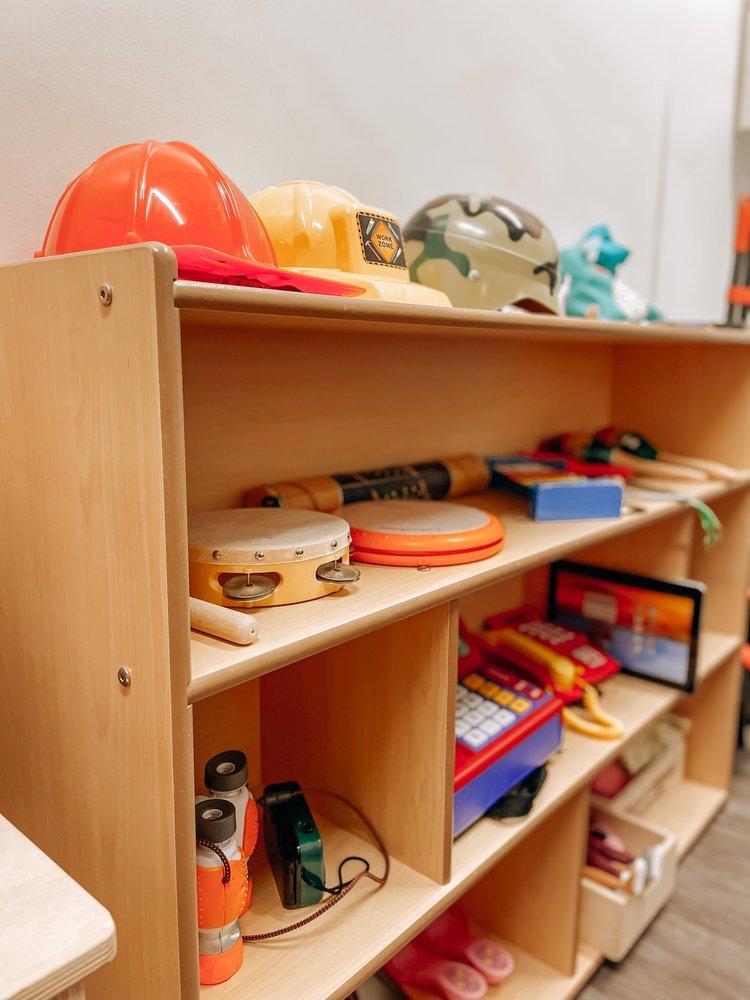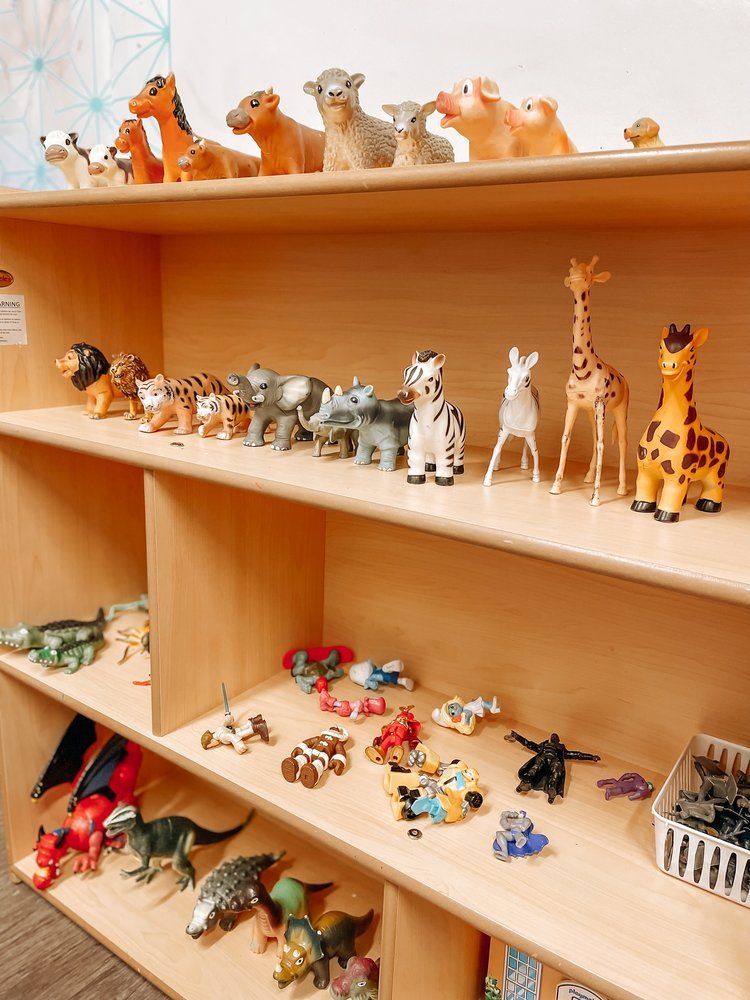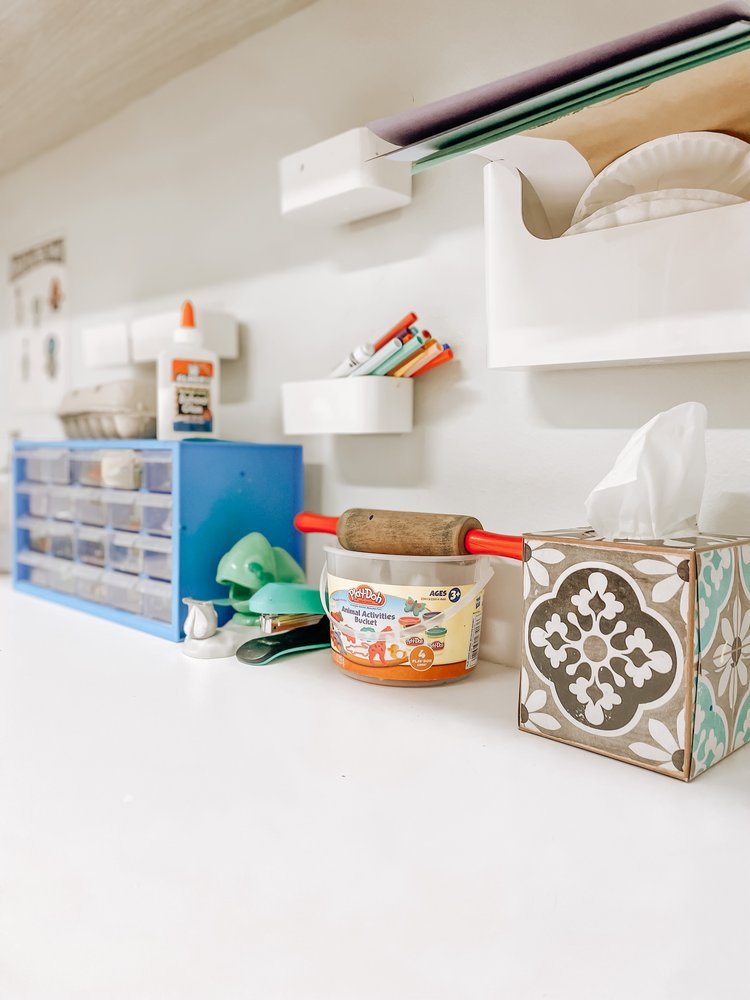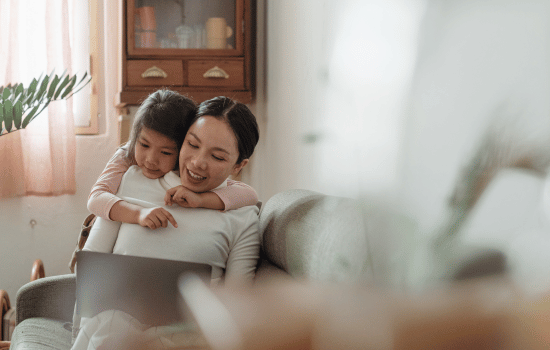Child Therapy Dallas
Is your child experiencing issues that affect everyday life? Maybe they are having emotional meltdowns at home or struggling with anxiety about school. As a parent, you want the best for your child. But it can be difficult to know how to support them, especially when they’re struggling.
No one gives you a manual telling you the best way to parent your specific child. Thankfully, play therapy is a holistic approach that helps your child learn how to process difficult emotions. By giving your child this safe space in therapy, you can help them thrive and experience more harmony within your family.
Why play therapy in Dallas may be a good fit for your child
Adults often think of therapy as serious business, and it is. Therapy or counseling can help you change the way you think, feel, and relate to others. But that doesn’t mean that therapy can’t be playful. In fact, play therapy is often considered the most appropriate treatment for children.
When I took my first play therapy class at the University of North Texas, something just clicked for me. I understood children so much better, and felt such a deep connection in meeting them where they are. Young children are still learning language and are unable to understand and talk about their feelings the way adults do. But children all over the world are naturally drawn to one thing: play. The way children explore and make sense of their world is through play. Like talk therapy for adults, play therapy utilizes children's most natural means of expression to help them in a way they understand. Toys function as the child's "words" or means to communicate what they are thinking about, and I help them heal and grow through that play.
My playroom is set up with a variety of different toys selected to help your child communicate. As your child adjusts to the playroom and me as a counselor, their play typically develops patterns or "themes." These themes (such as control, aggression, anxiety, and safety) guide the child and therapist towards the root of concerns. By creating a safe place to explore these concerns and test out new skills, counseling supports your child in generating creative solutions tailored to their specific concerns. This supports your child to feel empowered to overcome cognitive, emotional, and behavior problems now and in the future.
See Inside The Playroom
Here are a few pictures of the actual playroom at my practice so you can get an idea what it looks like.




Benefits of play therapy
Play therapy has numerous benefits and is effective across settings, age, gender, and therapeutic modalities. Not only does it benefit the child, but child counseling also benefits the entire family. When a child changes their thoughts, feelings, and behaviors, it can reduce parental stress and sibling conflict. Play therapy can help with a variety of concerns, including but not limited to:
Emotional Adjustment
Young children in counseling improved their ability to acknowledge and communicate their experiences. Aggressive, withdrawn, and anxious behaviors associated with emotional concerns decreased while children's self esteem increased.
Behavioral Adjustment and Social Skills
Child counseling can reduce the frequency and duration of a child's classroom disruptions. Play therapy improves on-task behaviors, personal control, and assertiveness. Social skills, including overall social-emotional competence, empathy, and responsibility also improved.
Academic Achievement
Child counseling not only helps those who are already struggling with attendance and grades, but also those who are at risk of such problems. Play therapy helps with overall academic achievement, reading, language, and math.
Some children just need some extra support for developmentally normal concerns. But counseling also addresses any trauma and underlying mental health issues. We know that half of all lifetime cases of mental illness begin by age 14 and 75% by age 24. By learning coping, problem-solving, interpersonal, and emotion regulation skills now, your child can be more prepared as they become young adults.
Meet Lindsey Bass, child therapist in Dallas
You want to do everything that you can for your child, and I am here to help you help them. I am Lindsey Bass, a Licensed Professional Counselor in the Dallas, Texas area. I specialize in child and adolescent counseling. As part of my dedication to working with children and their families, I received extensive education and training to also obtain the Registered Play Therapist (RPT) credential. As both a Licensed Professional Counselor and Registered Play Therapist, I love working with children and their families to help them live more confident, happy, brighter lives. There are many things that might bring you to counseling and whether you are worried about your child’s low self-esteem; feelings of depression or anxiety; or behavioral or academic concerns—or you want some reassurance that your child has all of the resources they need to further explore their personal identity and grow. Whatever has brought you here, I enjoy supporting the entire family on their journey. I love working with children to help them address all their many life changes and to empower parents to feel their most capable and connected with their children.
I focus on each of my clients as a whole person. Whether they are dealing with emotional meltdowns, high risk behaviors, academic concerns, low self esteem, or trauma, everyone is more than their struggles. By focusing on building on existing strengths as well as learning new strategies to manage difficult emotions, I help children feel more confident, secure, and capable.
Who my Dallas child therapy services are for
Child counseling can help with a broad range of issues. In my private practice, I am particularly passionate and focused on a few specific issues, including:
Children dealing with anxiety
Anxiety disorders occur in approximately 8% of youth. Frequent or uncontrollable worry or fears is one of the most common symptoms of anxiety. These fears get in the way of daily activities like going to school or spending time with friends. Many children and adolescents also have difficulty describing anxiety. They may complain about stomachaches or headaches instead.
One of the most common forms of anxiety in children is separation anxiety. Some symptoms of separation anxiety include:
Fear and reluctance to be alone
Worrying about something bad happening to them or others during separation
Worries about getting lost or kidnapped
Refusing to go to school or events (sports, sleepovers, etc.) where they may be separated from caregivers
Panic or emotional outbursts when separating from caregivers, including difficulty sleeping alone
Closely following a caretaker or sibling around, even when at home
Testing now often begins midway through elementary school and can also cause a lot of anxiety. Working with children and adolescents to increase self-confidence and develop coping skills and strategies to manage stress and anxiety is a key part of my practice. I also collaborate with parents to help them learn how they can manage their children's anxiety and bring more peace to their families.
Siblings of special needs children
Having a child with special needs impacts the entire family, including siblings. Alicia Arenas Maples discussed her experiences as a sibling of a special needs child. Her TED Talk helped popularize the phrase "glass child," which also gained popularity on TikTok. The phrase describes how children of special needs siblings are often overlooked (like looking through glass) due to their sibling's needs. As Arenas Maples put it, "When someone asked us how we were doing, the answer is always: I'm doing fine.”
This isn't just a trend on social media. The CDC estimates that 17% of children 3 - 17 years old have a one or more developmental disabilities. Between 1 in 10 to 1 in 20 young people grow up with a chronically ill family member.
Previous studies have focused on children with chronic illnesses and their parents. Recently there has been more research focused on siblings, and it is consistent with Arenas Maples's account. Many siblings of children with chronic illnesses or disabilities make themselves what their families need them to be.
Glass children can be highly empathetic, understanding, and resourceful. But they can also feel like their needs come second and that they can't share negative feelings or experiences. Symptoms of anxiety and depression as well as intense feelings of anger, difficulty in school, and perfectionism may all be signs that these siblings need some extra support. I provide a safe space for these children to explore their feelings without worrying about taking care of their families.
Parents dealing with difficult child behaviors
Parenting is a difficult job! Many family members struggle with responding to a child in an effective way. And it feels like everyone you talk to has a different opinion. There’s so many things that you’re doing right, and I want to empower and encourage those while also helping you figure out the specific things that aren’t working. Your own family history may have influenced how you approach your child, but your child doesn’t respond to the strategies you are used to anymore, or you want to do something differently but don’t know how. I use principles from child parent relationship therapy to help parents address their concerns and feel more connected to their children. As part of my work with parents, I empower you with the strategies I use in working with children to more effectively communicate with your child and be the most powerful, positive parent you can be.
LGBTQIA+ Children
Children are developing their sense of self, and part of that development includes gender and sexual orientation. Though you may think they're a little young, many children begin to explore these aspects of identity. Children enjoy dressing up and engaging in a variety of activities and some of them may be stereotypically masculine or feminine. They may picture themselves with someone of the same or a different gender in the future. Your child may decide that they feel more like a boy or a girl or neither or both, and that can be confusing for parents. How your child explores gender and sexuality may change as they approach puberty, or it may stay the same. The important thing is for your child to feel safe and comfortable exploring and discussing those feelings with you.
Many parents and their children may find the idea of discussing gender or sexuality with each other uncomfortable. But research indicates that it is extremely important. LGBTQ youth who report having at least one accepting adult were 40% less likely to report a suicide attempt in the past year.
Although our society has come a long way, there can still be stigma attached to "being different." It is common for parents to worry about the potential stigma that a child may face by being LGBTQIA+. You may feel pressure to shield them from those experiences. You may even be mourning your idea of your child's future, and that is okay. If you are feeling unequipped to help your child, remember that they probably do not expect you to be the expert, and that I am here to support you.
Children with low self esteem
Children still have a very concrete, black-and-white mentality. Children often begin comparing themselves with peers around the age of seven-years-old. These comparisons are often focused on what they can do, such as being the best artist or the fastest in their class. To them, if they are not the best at something, then they aren't good at it. And then they tend to discount their strengths. Many children and teens need to feel that they are good at something to develop positive self esteem. Low self esteem and perfectionism tend to go together. Combined, they may mean your child being hard on themself or giving up before they've even tried because they're worried they won't do well. I enjoy working with children to affirm the strengths they have and build on them. With focused counseling, your child can see themself as more competent, capable person.
FAQs about working with a child therapist in Dallas
What is the best form of therapy for kids?
When working with children, it is important to consider how growth and development plays a role in treatment. Training to be a child counselor includes education about what child development and how to support children in each stage. The most effective child counseling takes into account how the young brain is developing. Play therapy and expressive arts-based therapy both incorporate child development.
I will work together with your family to determine what form of counseling is the best fit for your child. Regardless of what form of therapy your child would benefit most from, I focus on creating an environment of support and healing.
What age is best for play therapy?
Both younger children and older children can benefit from play therapy. The youngest children that I see are 3 years of age, and even some adolescents may still be engaged in play-based therapy.
Children may begin transitioning out of play therapy anywhere from 8 to 16 years of age, though it is most common around age 10 to 12. If you think your child might be too old for play therapy, please see Teen Therapy to learn more about my services for older children and adolescents.
If you aren't sure whether play therapy or another form of counseling may be appropriate for your child, please contact me for a free consultation to discuss how my services may benefit your child and your family.
What is the difference between a child therapist and a child psychologist?
A child therapist and a child psychologist have some similarities, and some differences. Both can provide support, help children learn how to manage big feelings, and work to improve the parent child relationship. Therapists can also diagnose many conditions. But psychologists receive additional training in assessments that mean they may be needed to diagnose certain conditions. These include specific learning differences and autism spectrum disorders.
Because their training is more broad, psychologists can also work as researchers, professors, or teachers as well as seeing patients. Therapists are usually focused only on helping clients develop skills to better adapt to their lives.
Both child counselors and child psychologists can also make recommendations for school accommodations. Depending on the school administration, some may prefer to hear from a psychologist. However, neither can prescribe medications. Only psychiatrists, psychiatric mental health nurse practitioners, and trained pediatricians can prescribe medications as part of a child's treatment.
Give your child a safe space to express themselves with play therapy
Life can be hard at any age. It is hard to imagine your child struggling, but there are going to be challenges in their life, and learning how to deal with them early sets your child up for success. With a holistic approach to counseling, I help my clients and their families feel empowered to overcome cognitive, emotional, and behavior problems now and in the future.



